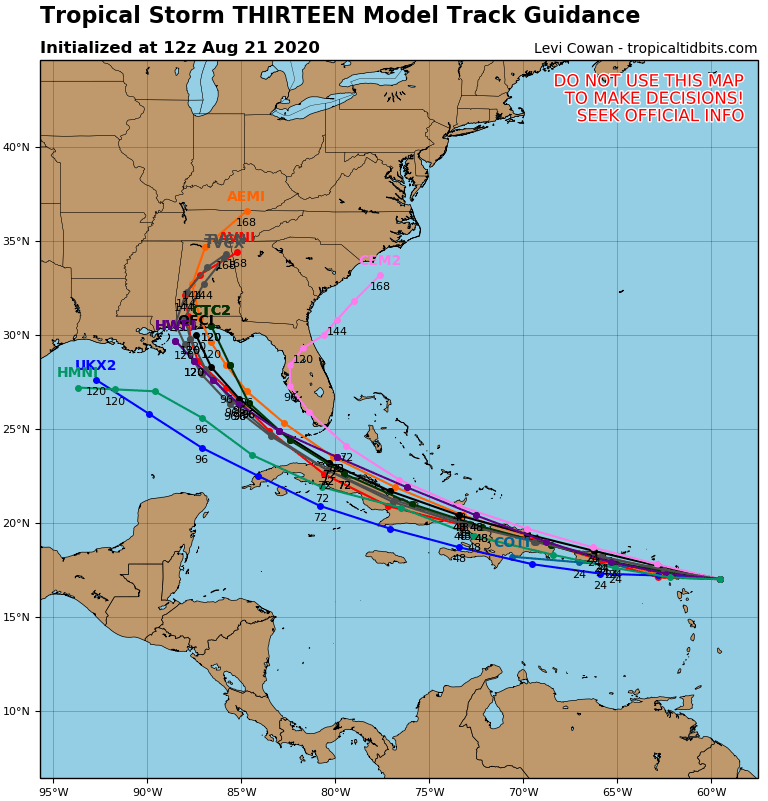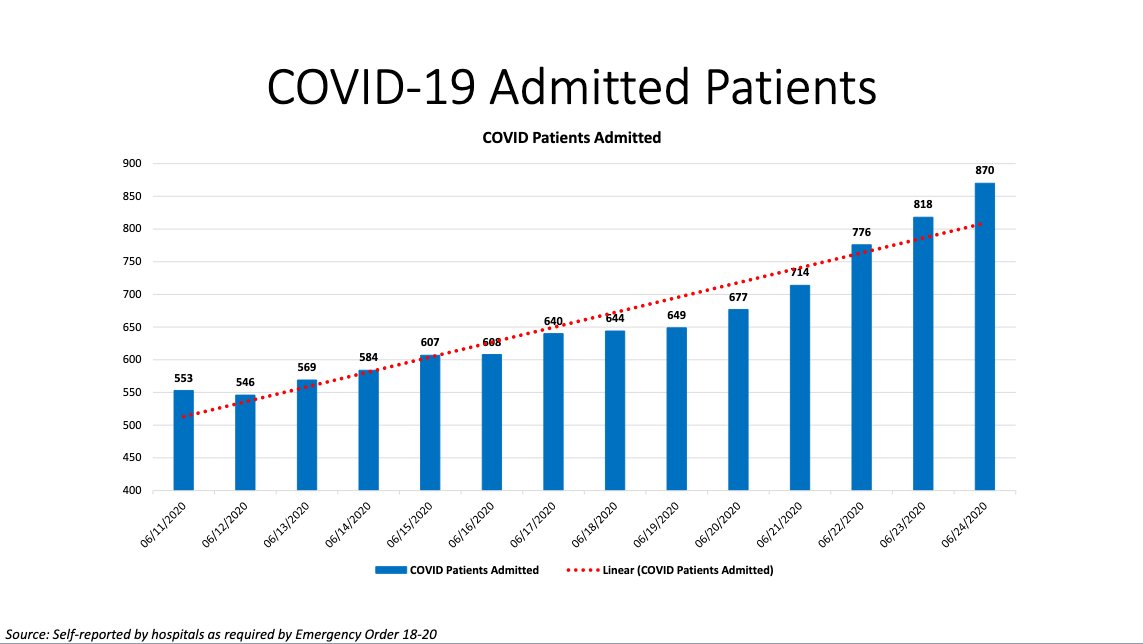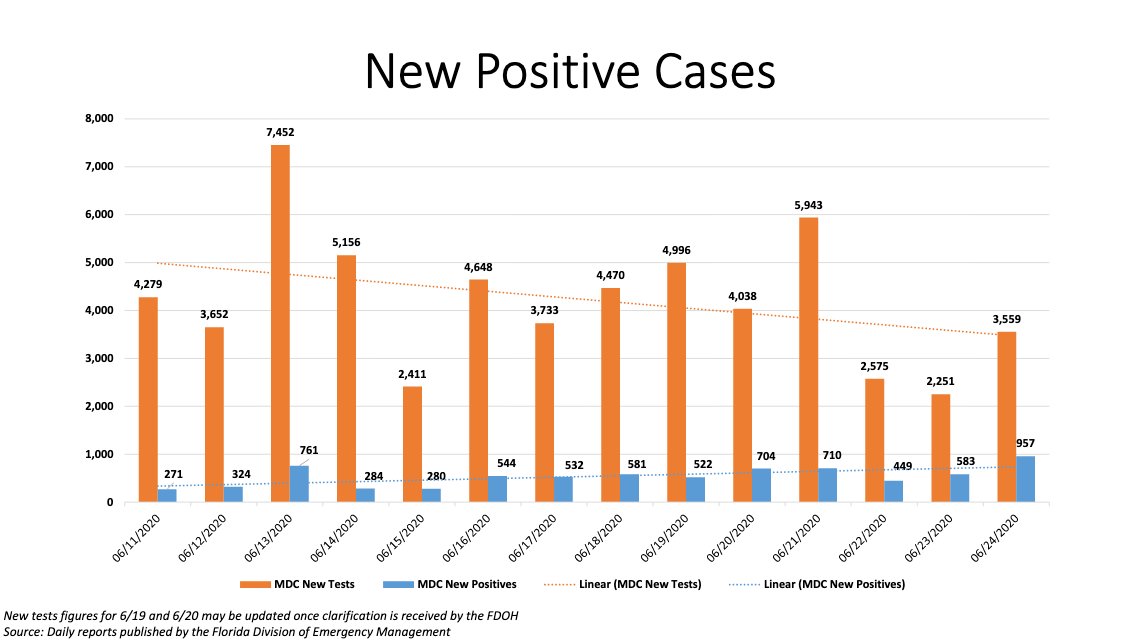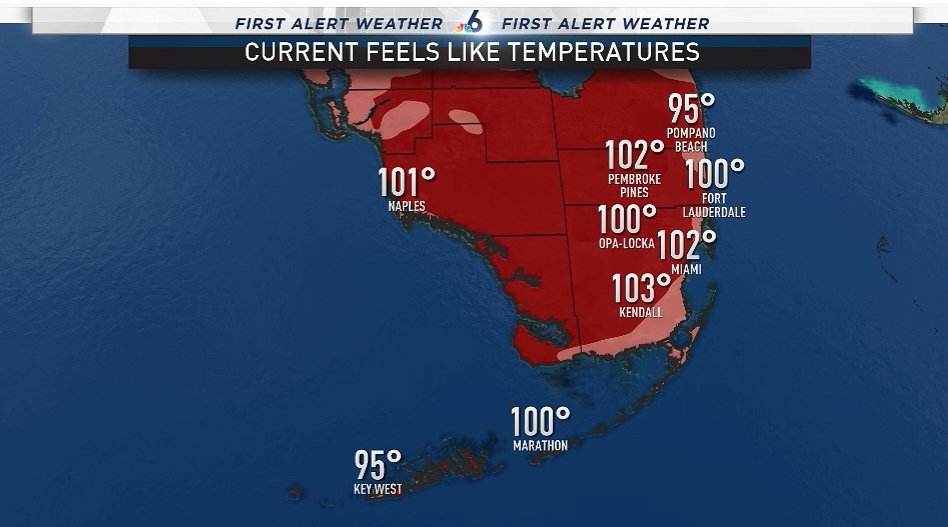
Sunday coffee Eta briefing:
The dry air from the upper level low has arrived, while wind shear and land interaction impact the storm. The storm is, at least for now, weakening. Tellingly, the Hurricane Watch for South Florida has *not* been upgraded to a Warning.
1/
The dry air from the upper level low has arrived, while wind shear and land interaction impact the storm. The storm is, at least for now, weakening. Tellingly, the Hurricane Watch for South Florida has *not* been upgraded to a Warning.
1/
Models, which have now benefited from 2 surveillance missions from the G-IV jet sampling the environment on 3 sides of Eta, have joined the anticipatory Euro which was calling for a hard-left out of Cuba. While that turn has yet to happen, Eta is slowing — a sign of imminent turn 

As a result, NHC has pushed their forecast track south yet again — now showing the center passing 94 miles away from Miami and making landfall as a robust tropical (or subtropical) storm in the Lower Keys very late tonight. On the map, blue depicts the Tropical Storm Warning
3/
3/

Courtesy of @INSMET_CMP_CMG we can see Eta’s structure on Cuban weather radar. No eye-like feature and severely eroded on the south and southwest side due to the dry air from the upper low. But the northern “dirty” side is a doozy. And that’s the side all of us will deal with
4/
4/

@INSMET_CMP_CMG With max winds trending down and the dry air entrainment, it’s tough to see how, despite warm waters, Eta comes back to surpass the intensity (65 mph) it had on approach to Cuba. There will be some relaxing of the wind shear, but …
5/
5/
@INSMET_CMP_CMG There isn’t a single intensity model that calls for Eta to become a hurricane in the next 24 hours, by which time it would be in the Gulf of Mexico. About a third of the models make Eta a hurricane in about 3 days in the Gulf or while threatening Florida’s west coast.
6/
6/

@INSMET_CMP_CMG My forecast for metro South Florida remains the same:
Excessive rainfall likely adding up to 10+ inches through Mon. A Flood Watch is posted.
Winds gusting 50-70 mph late Sun through early Mon. A Tropical Storm Warning is posted.
Storm surge of 2-4 ft.
Isolated tornadoes.
Excessive rainfall likely adding up to 10+ inches through Mon. A Flood Watch is posted.
Winds gusting 50-70 mph late Sun through early Mon. A Tropical Storm Warning is posted.
Storm surge of 2-4 ft.
Isolated tornadoes.
@INSMET_CMP_CMG If you prefer this in one cohesive post, it’s now on FB here:
facebook.com/johnmoralesnbc…
8/8 fin #eta
facebook.com/johnmoralesnbc…
8/8 fin #eta
• • •
Missing some Tweet in this thread? You can try to
force a refresh









